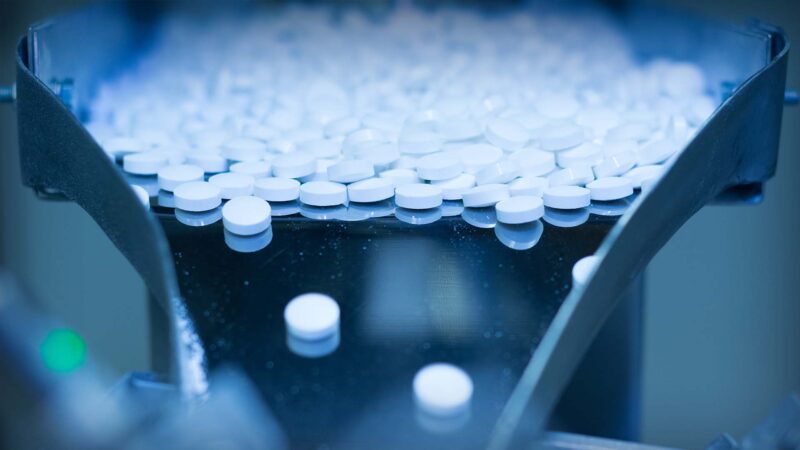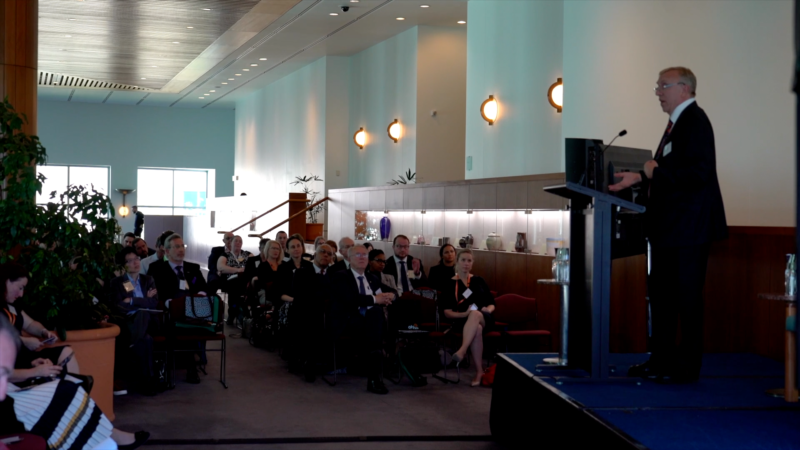Tasmanian medical research charity funds projects that have a global impact and improve community health and well-being.
- Tasmanian medical research charity funds projects that support community health and well-being, with clinicians and researchers working across the health system and university.
- Tasmanian medical research on childhood cataracts and gene variants can be easily studied and applied globally due to the small population and genetic diversity of the island state.
- The Royal Hobart Hospital Research Foundation funds medical research in various fields to support the Tasmanian community, in areas such as cardiothoracic, neurological conditions, and premature babies.
- Research supported by RHHRF has led to the development of innovative treatments for JackJumper ant bites, resulting in the establishment of a desensitisation clinic at the hospital and a significant reduction in deaths from anaphylactic shocks caused by these bites.
- Tasmanian medical research has had a global impact, with projects like the Hobart Method being implemented in neonatal clinics worldwide, and blood pressure testing research involving patients from Tasmania, China, Italy, and other countries.
Australian Health Journal spoke to Stephanie Furler the Chief Executive Officer of The Royal Hobart Hospital Research Foundation about the impact of this research locally and in global health.
You Might also like
-
From paediatric nursing to leadership & private hospital general management
With over 20 years of experience in the Australian and international healthcare sectors, Georgia Banks is a dedicated and results-driven health professional with a proven track record in clinical, financial, human resources, and strategic management. Passionate about delivering high-quality patient care, Georgia possesses an authentic leadership style that fosters engagement, collaboration, and continuous improvement.
Currently serving as General Manager at Hobart Private Hospital within Healthscope, Georgia has been instrumental in driving operational excellence, enhancing patient experience, and supporting staff development. Her leadership has played a key role in aligning hospital services with strategic priorities while fostering a culture of accountability and innovation.
-
Sovereign capability uplifted
Skilled labour, in particular skilled in the manufacture of MTP products, namely competency in Good Manufacturing Practice (GMP), was identified as one of the key priorities, according to Jarrod Belcher, Director of the REDI Program at MTPConnect. Through a competitive process, MTPConnect selected additional industry training providers to deliver new programs addressing key skills gaps in the sector workforce.
Launched in September 2022, one of these programs is GMP Uplift developed by the Centre for Biopharmaceutical Excellence (CBE). CBE bring experience across large and small Biologics, Pharmaceuticals and Regenerative Medicine companies, both in consulting and GMP related enterprise training. CBE staff also have extensive experience in GMP operations, compliance, auditing and QMS design, a wide industry network for guest lecturers and readily available case studies.
-
The 2019 John Deeble Lecture and Panel Discussion
The John Deeble Lecture and Panel Discussion was established by the Australian Healthcare and Hospitals Association to commemorate the life and achievements as distinguished scholar, health economist and health policy leader, Prof John Deeble AO.



